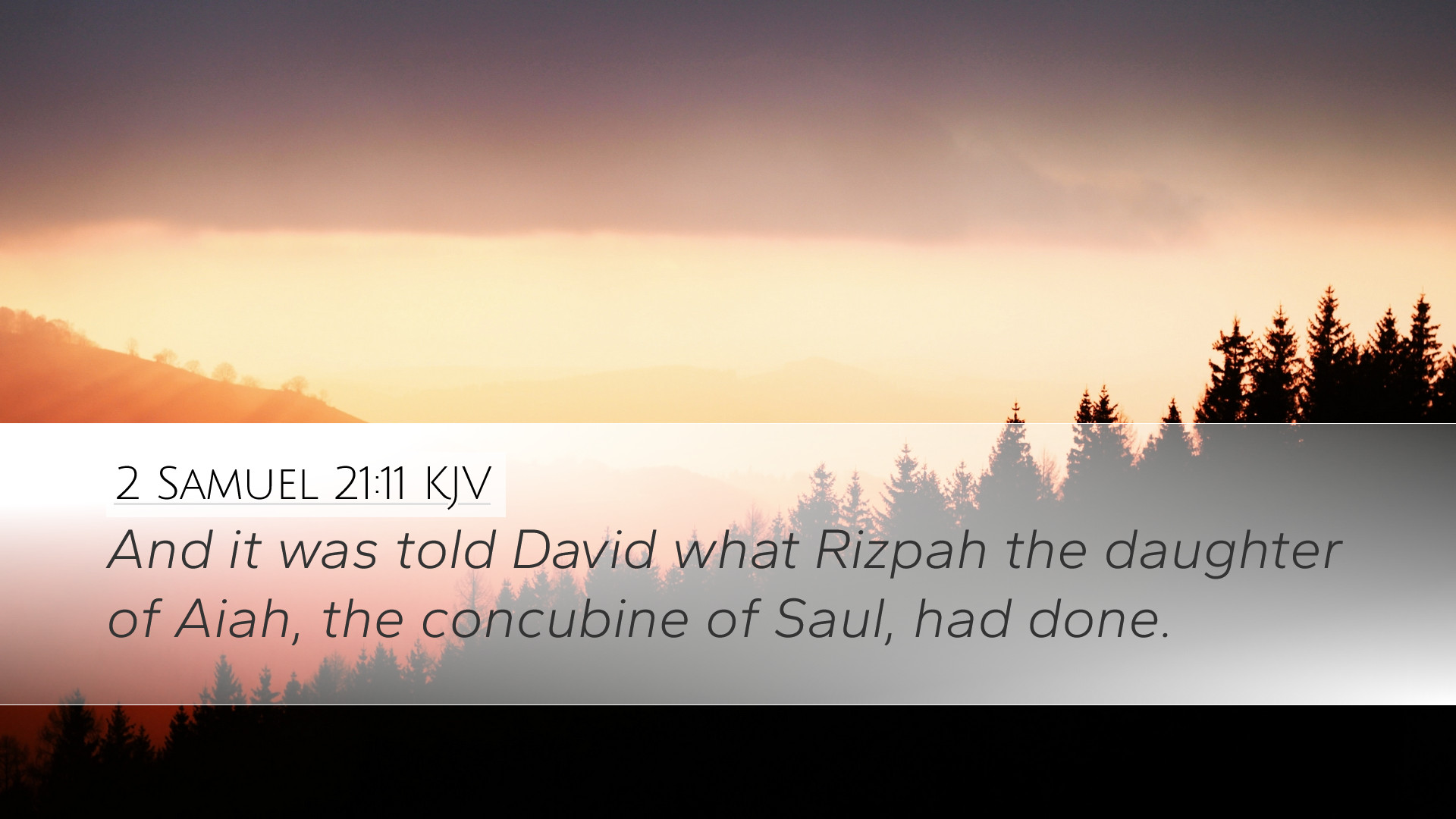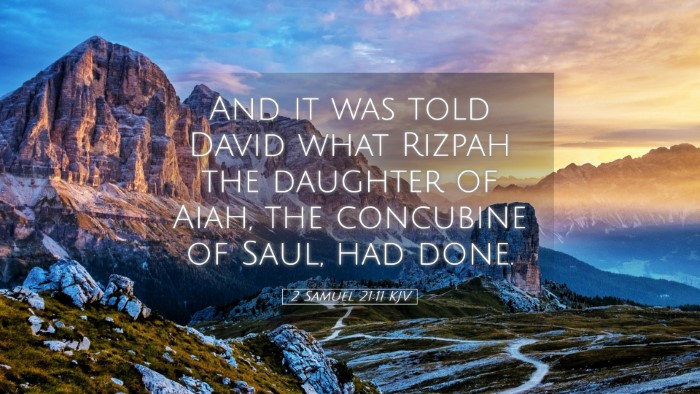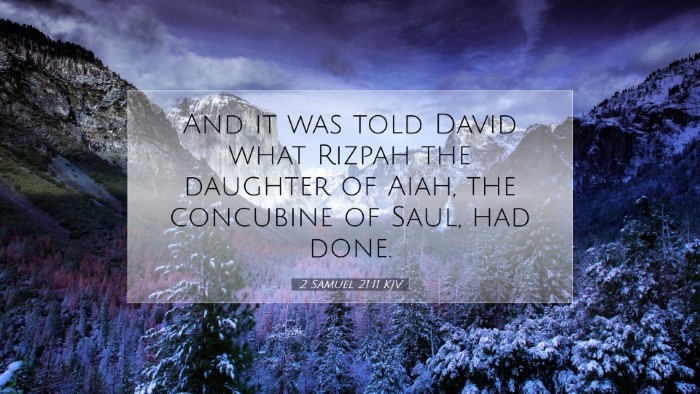Commentary on 2 Samuel 21:11
Verse: "And it was told David what Rizpah the daughter of Aiah, the concubine of Saul, had done."
Introduction
The verse presents a significant historical and emotional moment in the reign of King David, marked by the actions of Rizpah, who is portrayed as a figure of deep mourning and devotion. This commentary will explore the context, implications, and theological reflections on this verse, drawing insights from notable public domain commentaries.
Contextual Background
Historical Context: The events surrounding David's reign, particularly in relation to Saul's lineage and the prevailing tensions in Israel, are critical to understanding this narrative. The earlier chapters of 2 Samuel narrate how David became king and the turbulent relationship between him and the house of Saul.
Moral Complexity: The story of Rizpah unfolds within a backdrop of civil strife and the consequences of sin, illustrating the complexities of David's kingship and the tragic fallout of Saul’s actions.
Insights from Commentaries
-
Matthew Henry:
Henry emphasizes the profound sorrow and determination of Rizpah, who mourned for her sons in the sight of all Israel. He notes that Rizpah's refusal to allow the birds and beasts to desecrate the bodies speaks to her fidelity and maternal love. This act of mourning not only showcased her personal grief but also served as a public testament to the injustice surrounding the circumstances of her sons’ deaths.
-
Albert Barnes:
Barnes provides a historical interpretation of the passage, suggesting that Rizpah’s actions stirred the conscience of David, leading him to recognize the need for justice. He notes the significance of her actions in relation to the covenant and the tumultuous times in which they lived. Barnes articulates that Rizpah’s mourning was not only for her sons but also a cry for justice within a community ruled by chaos and retribution.
-
Adam Clarke:
Clarke explores the emotional depth of Rizpah’s character, drawing parallels between her grief and the broader narrative of suffering in Israel. His commentary encourages readers to understand the gravity of the situation through Rizpah’s lens. He highlights her resilience and the symbolic role of her vigil over the bodies as a powerful statement against injustice and a call for compassion from the leadership of Israel.
Theological Reflections
The events in this verse lead to several theological reflections that can be applied to contemporary faith communities:
-
The Nature of Grief and Loss:
Rizpah’s lamentation becomes a poignant reminder of the human experience of grief. It invites a deeper understanding of mourning within scriptural contexts, allowing believers to acknowledge and process their sorrows in a sacred manner.
-
Justice and Mercy:
David’s response, prompted by Rizpah’s actions, echoes the biblical call for justice intertwined with mercy. The narrative challenges leaders to heed the cries of the marginalized and act justly within their communities.
-
The Role of Women in Scripture:
Rizpah’s powerful presence in this narrative highlights the often-overlooked roles of women in biblical stories. Her dedication and courage can inspire contemporary reflections on the contributions of women in spiritual and social realms.
Conclusion
In conclusion, 2 Samuel 21:11 encapsulates a critical moment in the narrative of David’s reign, enriched by the emotional and historical insights provided by respected commentators. The story of Rizpah invites readers into a reflective space, urging a commitment to justice and compassion as intrinsic to the Kingdom of God. Her story resonates through the ages, challenging believers to embody these values in their own contexts.


